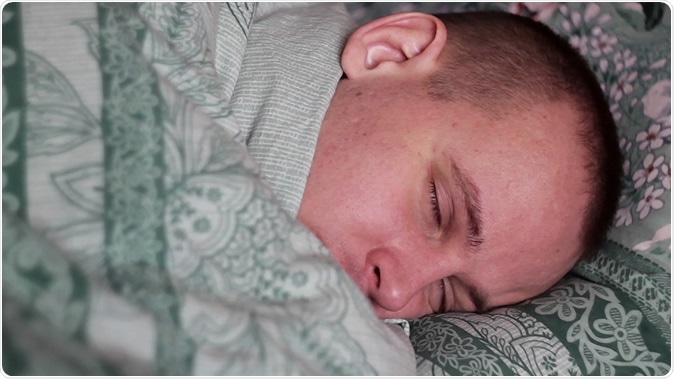According a new study lack of sleep can actually contribute to mental health problems as suspected earlier. The study aimed to see if improvement in sleep could help reduce psychological problems such as paranoia and hallucinations. The study termed OASIS (Oxford Access for Students Improving Sleep) was a randomized controlled trial that involved 26 universities in the United Kingdom. The study was published in the latest issue of the journal Lancet Psychology.

Image Credit: DarkMediaMotion / Shutterstock
Insomnia is one of the commonest sleep problems and is seen with a wide range of features including continued difficulty in initiating or staying asleep or both that leads to problems during the day time.
The participants, university students, suffering from insomnia or lack of adequate sleep were divided into two groups equally. Half of these participants received digital cognitive behavioural therapy (CBT) for insomnia while the other half received usual supportive care as is given for insomnia. The enrolment of the study took place between March 5, 2015, and Feb 17, 2016. A total of 3,755 students with insomnia were included. Of these 1891 received CBT while 1,864 participants received usual care.
The digital CBT administered to half of the study participants is called Sleepio. There are 20 minutes long sessions – six of such. The sessions are usually to be unlocked weekly but participants can choose to move slower. In addition sleep diaries, relaxation audios are to be used and were made available. The records of the sessions, sleep diaries as well as the audios could be accessed with an iPhone.
The team assessing the results were kept in the dark about which participant was receiving what treatment. At the beginning and during the course of the therapy, the participants were tested online at start, 3 weeks, 10 weeks and 22 weeks after therapy. They were asked to report about their insomnia, its frequency, paranoia and hallucination experiences during the study period.
Results showed that insomnia, paranoia as well as hallucinations significantly reduced when CBT was administered to the participants compared to usual care. Insomnia was found to be the mediator of both the paranoid thoughts as well as hallucinations.
According to Daniel Freeman, co-author of the research from the University of Oxford, the primary belief is that sleep problems are a symptom of mental health or are caused as a result of mental health problems. However, the picture is different, he explained, sleep is a contributing factor to mental health problems. He added that having insomnia doubles the chances of getting depression and now this study proves that if the insomnia is treated, depression can be reduced.
One of the problems with this study was the high drop-out rate. Only around 18 percent of the participants in the CBT group accessed all the six scheduled sessions. This could have skewed the results. Freeman noted however, that despite the high dropout rates, the patterns of improvements did emerge out of the results.
Researchers add that this was one of the largest studies that assessed the link between sleep and mental health problems. They advise that ensuring a good night’s sleep might be the cornerstone of treatment of mental health problems as is evident from this study.